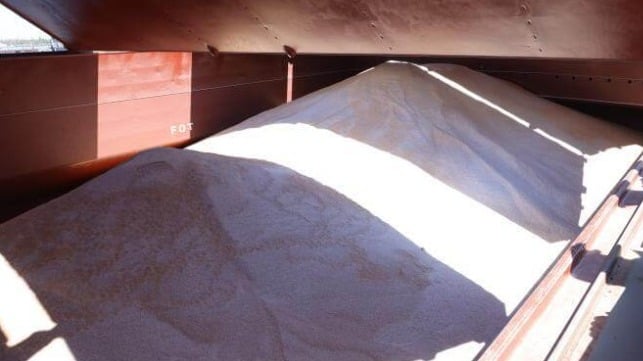Turkish Authorities Detain Russian Bulker Carrying Ukrainian Grain

Turkish officials have detained the Zhibek Zholy, the first merchant ship to carry grain out of the Ukrainian port of Berdyansk since Russians occupied the city at the start of the invasion. Ukraine contends that the cargo aboard the Russian-flagged Zholy is stolen and that the exports are unlawful.
The Zholy went dark on AIS near Kerch Strait on June 25, shortly after heading northbound into the Sea of Azov. The Russian-appointed governor of Zaporizhzhia, Yevhen Balytskyi, confirmed her departure from Berdyansk on June 29. Balytskyi said that the Zholy would be carrying 7,000 tonnes of grain from Berdyansk to "friendly" nations. (In the past, Russian-aligned Syria has accepted grain consignments of questionable provenance from Russian-controlled ports.)
Zholy's AIS signal reappeared on 29th at about the same position near Kerch Strait, headed southbound. The ship crossed the Black Sea and made for Turkey's northern coastline, where she anchored off the small port of Karasu.
According to Amb. Vasyl Bondar, Ukraine's representative in Ankara, Turkish authorities have detained the Zholy after an urgent request from Kyiv. "We have full cooperation," he told Ukrainian media. "The ship is currently standing at the entrance to the port; it has been detained by the customs authorities of Turkey."

that matters most
Get the latest maritime news delivered to your inbox daily.
The successful seizure is at least the second time that Ukraine has managed to convince a neutral country not to accept a shipment of stolen grain. According to Ukrainian officials, the bulker Matros Pozynich loaded a cargo of Ukrainian grain in Russian-occupied Crimea in April, then attempted to deliver it to a buyer in Alexandria, Egypt. After an appeal by the Ukrainian government, Egyptian authorities refused to allow the vessel to enter, and the Pozynich diverted to a port in Syria instead.
Ukraine's ministry of agriculture claims that in total, Russian forces have stolen about one third of the grain available in recently-occupied territories, an amount equal to about 500,000 tonnes.
